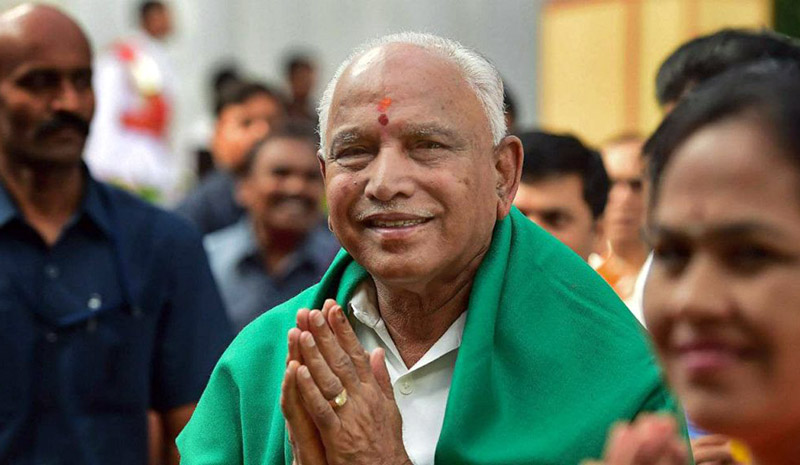
Yediyurappa mulls job reservation for locals in Karnataka

A month after the Andhra Assembly passed a bill to reserve 75 per cent of upcoming industrial jobs for locals, Karnataka Chief Minister BS Yediyurappa promised to do the same.
Yediyurappa on August 15 assured a lion’s share of jobs in the private sector to Kannadigas in Karnataka. He had proposed a similar move when he was the chief minister in 2011, but it could not be implemented as he got arrested in an illegal mining scam. His statement now comes in the wake of pro-Kannada organisations demanding the Chief Minister pass a bill to this effect.
Besides assuring job reservations, the CM also asked those migrating to the city to adapt to Kannada culture without compromising their identity.
States like Andhra Pradesh, Maharashtra, Tamil Nadu, Odisha, Gujarat and, recently, Madhya Pradesh, which have already brought in job reservation policies for locals, are struggling to implement the rule as there is resistance from the business community.
The Bombay High Court recently upheld the validity of reservation in jobs and education to Marathas under the socially and educationally backward class (SEBC) quota. Marathas, who comprise a third of the population in Maharashtra, are now are eligible for 12 per cent quota in jobs and 13 per cent in education in the state.
In Madhya Pradesh, Chief Minister Kamal Nath, soon after assuming office, announced 70 per cent reservation in industries for locals.
The business class in Karnataka is not happy with the reservation policy as it impacts the talent pool. The move is seen by experts in industry as a “regressive and recklessly populist” one that will hamper a state’s industrial development.
The corporate sector had expressed its discontent before. Former Infosys director TV Mohandas Pai and Biocon chief Kiran Mazumdar Shaw had openly criticised the government’s move to give reservation to locals.
In 2016, when the Karnataka government hinted at reservation, Mazumdar Shaw had said reservation policies reflected a desperate government trying parochial policies to retain power. “It never works. Development is the answer.”
Meanwhile, Pai had told The Federal that the government would harass industrialists and workers from other states and it would impact the investment ecosystem as many would not be willing start businesses in state with such rules in place.
Before the 2019 Lok Sabha elections, as a pre-poll promise, the Congress-JD(S) coalition government had proposed that it would give 100 per cent reservation for locals in category C and D jobs in Karnataka. Some questioned why the government plans to give job reservation to category C and D, but not to high paying white collar jobs (A and B category).
Sitting in the Opposition at the time, state BJP legislators termed the government’s move as a desperate attempt to retain power.
Activists had staged a protest earlier this year in June and vowed to storm into private companies and banks in protest, if the promise was not immediately met. However, the political crisis in the State cast a shadow on its implementation. Now, the same pro-Kannada organisations are mounting pressure on the Yediyurappa government.
In December 2017, during Siddaramaiah’s tenure as chief minister, some activists forcefully entered a handful of IT companies and forced them to bring down the shutters if they did not agree to the job reservation proposal.
“People from other states come here to work and they take away the opportunity of the locals. We welcome the State government’s decision to give reservation,” Vatal Nagaraj, president of the Kannada Chaluvali Vatal Paksha, said. However, he added that the plan should not remain just on paper but should be implemented effectively.nth after the Andhra Assembly passed a bill to reserve 75 per cent of upcoming industrial jobs for locals, Karnataka Chief Minister BS Yediyurappa promised to do the same.

